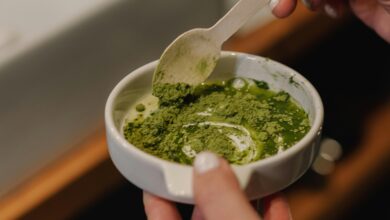The Best Holistic Practices for Immune Support

In today’s fast-paced world, maintaining a strong immune system is more important than ever. While conventional medicine plays a crucial role in treating illnesses, many people are turning to holistic practices to support their immune health naturally. Holistic approaches focus on nurturing the body, mind, and spirit, recognizing that true wellness stems from balance and harmony. This guide explores the best holistic practices for immune support, offering practical tips to help you build resilience and enhance your body’s natural defenses.
Understanding Holistic Immune Support
Holistic immune support involves addressing the root causes of weakened immunity rather than simply treating symptoms. It emphasizes lifestyle choices, nutrition, stress management, and natural remedies to promote overall well-being. By adopting a proactive approach, you can strengthen your immune system and reduce your susceptibility to infections and chronic diseases.
1. Nutrition: Fueling Your Body with Immune-Boosting Foods
A nutrient-rich diet is one of the most effective ways to support your immune system. Certain foods contain vitamins, minerals, and antioxidants that play a vital role in immune function.
Key Nutrients for Immune Health
- Vitamin C: Found in citrus fruits, bell peppers, and broccoli, vitamin C enhances the production of white blood cells.
- Vitamin D: Essential for immune regulation; sources include sunlight exposure, fatty fish, and fortified foods.
- Zinc: Supports immune cell function; found in pumpkin seeds, nuts, and shellfish.
- Probiotics: Promote gut health, which is closely linked to immunity; found in yogurt, kefir, sauerkraut, and kimchi.
Immune-Boosting Foods
- Garlic: Contains allicin, which has antimicrobial properties.
- Ginger: Known for its anti-inflammatory and antioxidant effects.
- Turmeric: Rich in curcumin, which supports immune response.
- Green Tea: Packed with antioxidants like EGCG (epigallocatechin gallate).
Tip: Incorporate a variety of colorful fruits and vegetables into your meals to ensure a wide range of nutrients.
2. Herbal Remedies and Supplements
Herbal medicine has been used for centuries to support immune health. Many herbs have potent antiviral, antibacterial, and anti-inflammatory properties.
Top Herbs for Immune Support
- Echinacea: Often used to prevent or shorten the duration of colds.
- Elderberry: Rich in antioxidants and may reduce flu symptoms.
- Astragalus: Traditionally used in Chinese medicine to boost energy and immunity.
- Adaptogens: Herbs like ashwagandha and reishi mushrooms help the body adapt to stress, indirectly supporting immune function.
Supplements to Consider
- Probiotic supplements for gut health.
- Omega-3 fatty acids to reduce inflammation.
- Multivitamins to fill nutritional gaps.
Caution: Always consult a healthcare provider before starting new supplements, especially if you’re taking medications or have underlying health conditions.
3. Stress Management: Calming the Mind to Strengthen the Body
Chronic stress weakens the immune system by increasing cortisol levels, which suppresses immune function. Managing stress through holistic practices can help restore balance.
Effective Stress-Reduction Techniques
- Meditation: Mindfulness meditation reduces stress hormones and promotes relaxation.
- Yoga: Combines physical movement with breathwork to calm the nervous system.
- Deep Breathing Exercises: Activates the parasympathetic nervous system, reducing stress.
- Journaling: Helps process emotions and identify stress triggers.
Tip: Practice gratitude daily by writing down three things you’re thankful for—it shifts focus away from stressors.
4. Sleep: The Foundation of Immune Health
Quality sleep is essential for immune function. During sleep, the body repairs tissues, produces immune cells, and regulates hormones.
Tips for Better Sleep
- Stick to a consistent sleep schedule.
- Create a relaxing bedtime routine (e.g., reading, taking a warm bath).
- Limit screen time and blue light exposure before bed.
- Keep your bedroom cool, dark, and quiet.
Fun Fact: Adults need 7–9 hours of sleep per night for optimal immune function.
5. Movement: Exercise as Medicine
Regular physical activity boosts circulation, reduces inflammation, and enhances immune cell activity. However, overtraining can have the opposite effect, so balance is key.
Best Types of Exercise for Immunity
- Moderate Cardio: Walking, cycling, or swimming for 30 minutes a day.
- Strength Training: Builds muscle and improves metabolic health.
- Yoga and Tai Chi: Combine gentle movement with mindfulness.
Tip: Avoid intense workouts when you’re feeling unwell—rest is more beneficial during illness.
6. Hydration: Supporting Cellular Function
Water is vital for flushing toxins, delivering nutrients to cells, and maintaining mucosal barriers that trap pathogens. Dehydration can impair immune function.
Hydration Tips
- Drink at least 8–10 glasses of water daily.
- Include hydrating foods like cucumbers, watermelon, and oranges.
- Limit caffeine and alcohol, which can dehydrate the body.
7. Environmental Awareness: Reducing Toxins
Your environment plays a significant role in immune health. Minimizing exposure to toxins can reduce the burden on your immune system.
Steps to Detoxify Your Environment
- Use natural cleaning products instead of chemical-based ones.
- Invest in an air purifier to remove allergens and pollutants.
- Choose organic produce to avoid pesticide residues.
- Filter tap water to eliminate contaminants.
8. Emotional Well-Being: Cultivating Joy and Connection
Positive emotions and social connections are powerful immune boosters. Loneliness and negative emotions can increase inflammation and weaken immunity.
Ways to Nurture Emotional Health
- Spend time with loved ones, even virtually.
- Engage in hobbies that bring you joy.
- Practice acts of kindness and volunteer work.
- Seek professional help if you’re struggling with mental health.
9. Seasonal Adjustments: Adapting to Nature’s Rhythms
Holistic practices often emphasize living in harmony with nature’s cycles. Seasonal adjustments can help your body adapt to changing environmental conditions.
Seasonal Immune Tips
- Winter: Focus on warming foods like soups and stews; take vitamin D supplements.
- Spring: Incorporate detoxifying foods like leafy greens and sprouts.
- Summer: Stay hydrated and protect your skin from excessive sun exposure.
- Autumn: Build resilience with immune-boosting herbs like echinacea and elderberry.



